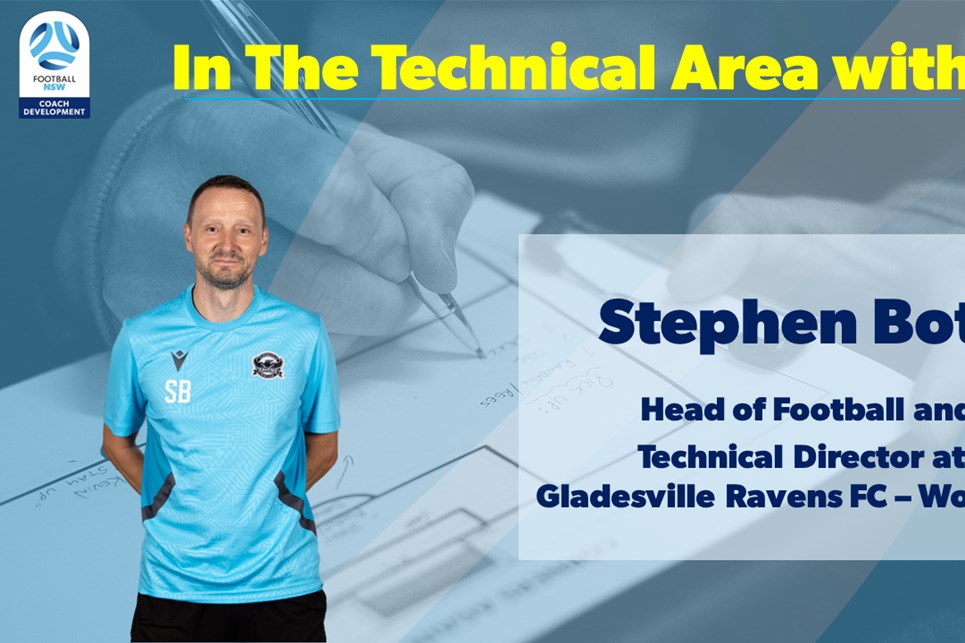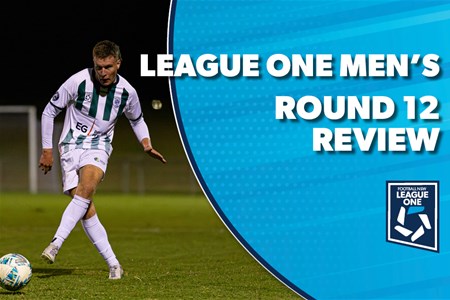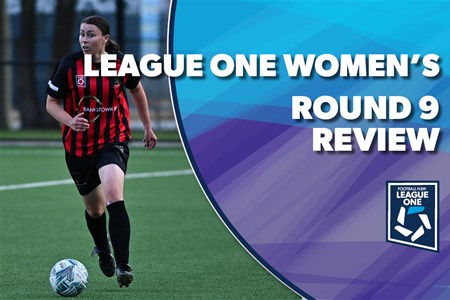In The Technical Area with Stephen Bott

Stephen is currently Head of Football for the Gladesville Ravens NPL Women’s program.
When did you first start coaching and why?
I started coaching after I stopped playing at the age of 39 after an ACL injury. Football is a part of my DNA, so it was just a case of working out where I wanted to continue in the game.
Initially I started in S&C as that was something that really interested me, so I spent a few years studying academically in the area of sports science and personal training, and from there I started my coaching journey as an S&C Coach.
Opportunities then arrived and I progressed into skills training with Coerver, and slowly I got pulled further and further into the world of football coaching. I’m now working full time in women’s football.
What do you think are the three main characteristics of a successful coach?
- Openness – to learning, to opportunity, to people.
- Commitment – the idea of being a coach is much more attractive that the reality in many cases. You need a commitment to the craft, to the hours of work needed to be successful, to learning, in some cases to the costs (financial and family).
- Patience – it’s a long road, I know its cliché but it’s not the destination, it’s the journey. The fun is in the process, outcomes will vary as will results, but the process will provide the special moments that keep us hooked.
How do you keep developing yourself as a coach to be the best you can be for your players?
It’s a mix of formal and informal learning. Licences are a great way to learn, not just the content of the courses but the fellow coaches you meet along the way. Lots of new ideas, different opinions, and just a general shared love for the game.
Informal learning comes from just watching football relentlessly. I’ll watch any game, from Japanese women’s football on Youtube, to Spurs in the EPL. I’ll try to watch local social teams where I can and as much local NPL as possible. Learning from other sports is another great way of developing ideas.
If you could turn back the clock, what advice would you now give to yourself when you first started coaching based on the experiences you have had?
Relax. Focus on arming yourself with as much experience and learning opportunities as possible. When we start out on a coaching journey, we have pictures in our minds of where we want to be, what it will look like. I’ve learned that ambition is important, and that visualisation is key to keeping yourself motivated, but the reality is that most opportunities you find won’t look like what you thought they might, but that’s okay. It’s all part of the journey.


